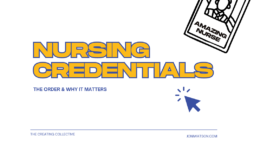Skip the surprise party and the Cheese of the Month Club, the World Health Organization (WHO) only wants one thing for it’s 63rd year of impacting global health – action against the spread of antimicrobial resistance.
Antibiotics were heralded as miracle drugs upon their discovery in the 1940’s. Indeed, they have save many lives and practically eradicated diseases while reducing once super-infections such as strep throat to minor ailments. Yet, with the increase of antimicrobial usage – largely antibiotics – pathogens, coined “superbugs”, have built drug-resistances to these antibiotics – a problem healthcare professionals see all too often. MRSA, VRE, and Drug-Resistant TB are a few such examples.
As I have read more about this issue, I have learned fewer and fewer antibiotics are being discovered or created. In fact, Dr. Margaret Chan, WHO Director-General states, “…the R&D pipeline for new antibiotics has practically run dry.” She warns, “The message on this World Health Day is loud and clear. The world is on the brink of losing these miracle cures.” I cannot, nor do I want to, imagine a world without antibiotics.
The WHO is working on it’s birthday by proposing a policy package to combat antimicrobial resistance. On this anniversary of the WHO’s founding, World Health Day, you can help combat the spread of antimicrobial resistance, too, and give the WHO the best gifts ever:
1. Antimicrobial Soap. That’s right. This nurse is about to talk about hand washing yet again. It is the best way to prevent infection, and those of us in developed countries often overlook this necessary luxury. Wash your hands. Wash them often. [steps off pun-intended soapbox]
2. Responsible Antimicrobial Prescribing. Providers everywhere can prescribe antimicrobials appropriately as well as fully educate patients about antimicrobials and usage (e.g. antibiotics do not treat viral infections, etc.). And, let’s not forget underuse of antimicrobials in developing countries is just as much a contributing factor to global antimicrobial resistance as is overuse of such drugs in developed countries.
3. Responsible Antimicrobial Consumption. Know when to use antibiotics and when to pass.
4. Advocate for the Policy Package Steps. A plan is always great, but implementation is icing on the proverbial birthday cake.
Happy 63rd, WHO. Here’s to a healthier world, one free of antimicrobial resistance.





